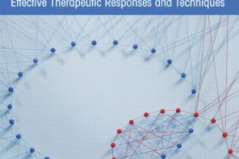Was that how it happened? Shaping our memory for personal experiences in conversation with others

keywords:
conversational remembering / memory distortions / retrieval induced forgetting / reconstructive memory / recalling experienced events
Was that how it happened? Shaping our memory for personal experiences in conversation with others
Conversations with others can alter our memories for life events. Our purpose in relating a story, and how our audience receives it, are factors that influence our selection of what details to include. The account we produce on one occasion may be maintained in subsequent retellings. Ultimately, we may report--and in some case come to believe--narratives that are not entirely factual. In this article, we will discuss research on the processes through which our conversations with...
/ moreMind: A Journey to The Heart of Being Human
Mind: A Journey to The Heart of Being Human
What is mind? Is it brain activity resulting in consciousness? Are mind and consciousness synonymous with each other? Is self-awareness an illness that leads to despair, or is physicality a curse that creates the delusion of separateness leading to alienation and melancholy? Defining the mind might... / more
What Therapists Say and Why They Say It: Effective Therapeutic Responses and Techniques
What Therapists Say and Why They Say It: Effective Therapeutic Responses and Techniques
The title of this book, What Therapists Say and Why They Say It: Effective Therapeutic Responses and Techniques. might be a bit misleading. At first I thought that this book is dedicated to patients trying to better understand their therapists and I found it quite amusing. However, the subtitle “Effective Therapeutic Responses and Techniques” better catches the essence of the book. It is a compendium of therapeutic techniques, one that catalogs, describes and... / more
It’s not a matter of fashion: How psychological research can revamp common beliefs on lesbian and gay parenting

keywords:
Lesbian and gay parenting / developmental outcomes / sexual identity / psychological adjustment / social functioning
It’s not a matter of fashion: How psychological research can revamp common beliefs on lesbian and gay parenting
Lesbian and gay parenting is still controversial and same- sex parents are often subjected to prejudices founded on the belief that parental sexual orientation exposes children to various negative outcomes. On the basis of this concern, a number of studies have compared the developmental outcomes of children with lesbian and gay parents with those of children with heterosexual parents. Both personal and social outcomes have been examined: sexual identity,...
/ moreMarginal and Happy – How can people be culturally detached and well adjusted?

keywords:
culture / identity / marginalization / marginalisation / acculturation / heritage / distinctiveness / uniqueness
Marginal and Happy – How can people be culturally detached and well adjusted?
Belonging to several cultural groups at the same time can be associated with complex feelings of group membership. In this post, I will provide an explanation for the phenomenon whereby many immigrants marginalize—feel detached from the mainstream culture they live in and the heritage culture they grew up in—while feeling happy. / more
Are conservatives really simple-minded?

keywords:
political ideology / conservatives / simple-minded / complexity
Are conservatives really simple-minded?
The current consensus in psychology is that political conservatives are uniquely simple-minded. Indeed, even the famous critic of political bias and Heterodox contributor Jonathan Haidt (and colleagues) suggested that there is a “consistent difference between liberals and conservatives” on several measurements related to cognitive complexity (Joseph, Graham, & Haidt, 2009, p. 176). / more
Foetus or child? Language and attitudes toward abortion

keywords:
language / attitudes toward abortion / humanness attributions
Foetus or child? Language and attitudes toward abortion
Due to moral, religious and cultural sensibilities, the topic of abortion still gives rise to controversy in many countries. In this post, I will discuss our research showing how language used in abortion discourse can affect people’s attitudes by changing their attributions of humanity to unborn (Mikołajczak & Bilewicz, 2015). / more
From the Editors: On the Current State of Science Journalism
From the Editors: On the Current State of Science Journalism
As we move through the 21st century, psychological science is at a crossroads. We are maturing as a field, albeit with some growing pains. The newest groundbreaking discoveries from cognitive, behavioral, and social scientists impress the academic community, and continue to prove the worth of studying the human mind. At the same time, our “food fights” about proper methodology and publishing norms (among other topics) pave the way for innovations that may end up being... / more
What is c Factor, and Where Can I Get It?

keywords:
collective intelligence / social sensitivity / equitable turn-taking / breadth of perspective
What is c Factor, and Where Can I Get It?
Meredith just landed her first job at a run-of-the-mill industrial design firm. As the newest member of an important project team, she began as an “average” member of the group. The team was reasonably strong; they met their deadlines for the most part, but there was definitely room for improvement. After some time on the team, her buy-in for the project began to build. With this growing enthusiasm came a desire to be a more noticeable... / more
Refugees work placement: Call for collaboration

keywords:
refugees / netherlands / work placement / recruitment
Refugees work placement: Call for collaboration
In the Netherlands only, more than 25.000 refugees arrived this year, and the numbers are rapidly increasing. One of the biggest challenges for refugees is to acclimatize, adapt, and find jobs in a new country. As a group of behavioral change experts, we want to help them, but we need some expert collaborators. This is a call for collaboration with a programmer, translator, and refugee organizations. / more



